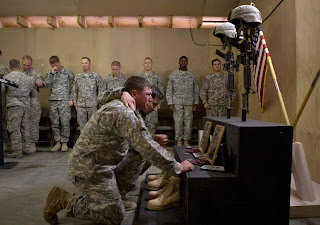 |
| Julian Assange, founder of WikiLeaks |
During July of this year, Wikileaks released 70,000 files concerning the Afghan war. It was one of, if not THE, largest leaks of all time. As one might imagine, the U.S. government was non too pleased. The Pentagon is now bracing for another publication. This one containing a grand total of 400,000 documents. In response to the possible leak, "the US military has assembled a 120-member team to prepare for the expected publication" (BBC). WikiLeaks claims that any and all names have been removed from the documents to protect those within them.
 The government, somewhat understandably, does not want these documents to be released and is doing whatever it can to prevent them from being brought to the light. They have blocked any revenue from ads coming in for the site. It is possible that government agencies have started a smear campaign against Assange. For instance, Assange is under investigation for an alleged sex crime that he claims that he did not do, and claims that the allegations are a part of this very same smear campaign. But what does the government have to hide? When can we "justify the government in silencing private speakers who seek to express contrary views" (Gey)? The correct answer should be never. If nothing wrong is happening, then why hide the truths?
The government, somewhat understandably, does not want these documents to be released and is doing whatever it can to prevent them from being brought to the light. They have blocked any revenue from ads coming in for the site. It is possible that government agencies have started a smear campaign against Assange. For instance, Assange is under investigation for an alleged sex crime that he claims that he did not do, and claims that the allegations are a part of this very same smear campaign. But what does the government have to hide? When can we "justify the government in silencing private speakers who seek to express contrary views" (Gey)? The correct answer should be never. If nothing wrong is happening, then why hide the truths?Gey, S. (2010). Why Should the First Amendment Protect Government Speech When the Government Has Nothing To Say?. Iowa Law Review, 95(4), 1259-1314. Retrieved from Academic Search Complete database.
Pentagon Braces for New Iraq War Wikileaks Publication. Retrieved from http://www.bbc.co.uk/news/world-us-canada-11562494.










-spl.jpg)
